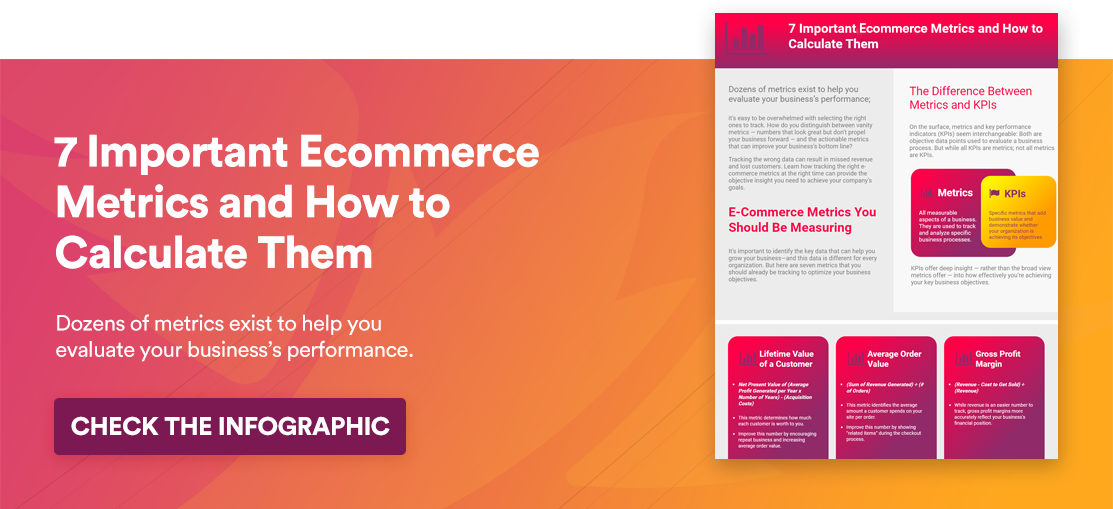Ecommerce Platform Profile: Magento
So you’re looking for the ecommerce platform that will work for your business, now and into the future? Make sure to include Magento on your list of possibilities. Not only is it one of the most popular ecommerce platforms on the market, Magento offers some advantages that are perfect for many businesses who love customization for their online experience. We’ve compiled what you need to know about this ecommerce platform that is trusted by some of biggest names in online retail.

Magento was founded and developed by Varian, Inc. in 2008 as an open-source platform, much like WordPress. It’s free to install, but you’ll still have to pay for web hosting, security, and extensions. Considered a very powerful platform, Magento also offers a strong portfolio of cloud-based omnichannel solutions, including order management and store associate technologies. Its robust extensions are great for complex sales and marketing strategies, as well as international expansion – which explains why so many large online retailers use it and the platform handles over $100 billion in gross merchandise volume every year.
Magento isn’t a platform for every business, however. The price tag can be high, and you will need to know how to code to take advantage of the best that Magento has to offer. Enterprise-level merchants with multiple brands and web development teams – or the budget to hire a dedicated developer – find it to be extremely useful for achieving their ecommerce goals.
What makes Magento special? Let’s take a look.

What You Should Know About Ecommerce CMS Magento
Magento is great for:
- High-end, professional-looking design
- B2B ecommerce
- International ecommerce
- Companies with dedicated developers
- Highly customizable, scalable and flexible designs
- Target marketing, customer segmentation and merchandising
- Integrated content management system
- Merchants with multiple brands/stores
- Larger user communities
You’ll Definitely Need a Web Developer
We don’t like starting with the challenges before the advantages, but this is important. Unlike some of the other ecommerce platforms on the market, Magento is complex. The fantastic customization, truly unique themes, and impressive add-ons require expertise to implement and maintain. It isn’t just complicated; coding is involved in building your online store. This will require a web development team or a dedicated technical resource to set up and maintain your site. The flip side is your resource will be well-supported.
Because Magento is a user community-based platform, the user guides are exceptional. Magento’s step-by-step instructions are written by developers for developers, and users have access to superb help and support team resources through SiteGround.
Magento Is an Investment
Although Magento is free to download, ecommerce companies have to budget for web hosting, security, extensions, and their domain(s). Most merchants opt for a SiteGround hosting plan, since it is one of the few providers that supports Magento.
The largest cost associated with using Magento is for the extensions. Some can cost thousands of dollars (but they are typically worth every penny – more on these in a moment). This is why Magento is recommended for medium to large businesses with significant budgets and revenue targets that will more than make up for the cost of their ecommerce site(s). Companies can also opt for Magento's enterprise plan, which combines many of the most used features and extensions, coming in at around $18000 per year.
Magento Has Themes, Extensions, And Add-Ons Galore
Magento offers the best of both worlds when it comes to themes, including a host of well-designed themes that average around $100, and gorgeous, super-slick custom themes that do require developer expertise and cost between $600 to $25,000.
Adding extra functionality is no problem with Magento. Its Marketplace has over 5,000 extensions and about 40% of them are free. The rest range from $30 to $2,000 – for example, the Facebook integration extension will cost you around $199. Most of the extensions and add-ons do require technical skills to integrate, but the payoff is worth it. Extensions worth considering include:
- Product Pre-Order for notifying customers when new products are available
- Remarkety for email marketing campaigns
- Banner Slider for advertising banners with personalized links.
Magento Supercharges Marketing, Sales and SEO
Speaking of marketing, Magento is known for having exceptional extensions designed to support sales and marketing. It is especially attractive to ecommerce merchants with a large number of products, multiple brands in one store, and merchants with a foothold in or aspirations for international business.
Magento’s inventory system allows for bulk data imports, which saves considerable time and energy. Plus, it supports having multiple variations on a single product, robust reporting, and visitor counting.
Sales tools and extensions for multi-channel sales, a custom checkout experience, abandoned cart recovery, and flexibility for setting discounts are just a few of the popular sales tools Magento offers. With so many extensions, the sky is the limit when it comes to implementing sales strategies with Magento.
But where Magento really shines is with SEO. Best practice guides and prompts are built into the platform. You can edit image alt tags for better Google searches and customize URLs to make your ecommerce site easier to find.
Magento Integrates Payment Processors and Fraud Prevention Solutions
Magento’s options for payment processors are practically endless with more than 150 payment gateways, including common processors like Stripe and Square, and bigger players such as WorldPay. One of the biggest differentiators for Magento is its integration with Amazon, which allows ecommerce merchants to sell products from their inventory on Amazon. Ecommerce merchants need to understand how online payment processing works and which option is best for their sales goals and business needs.

The bottom line?
Magento is an ideal ecommerce platform for medium to large businesses that have a dedicated web developer to design and maintain their ecommerce store. Magento offers features that help promote sales with direct marketing and SEO capabilities, as well as the operational features needed for tracking and reporting.
As is the case with any platform, Magento merchants need to be aware of ecommerce fraud and have a proven solution in place. ClearSale offers a free extension for integration with Magento for fraud prevention and protection. The extension is easy for developers to install and works best with the most updated version of Magento’s platform.
 Denise Purtzer
Denise Purtzer



